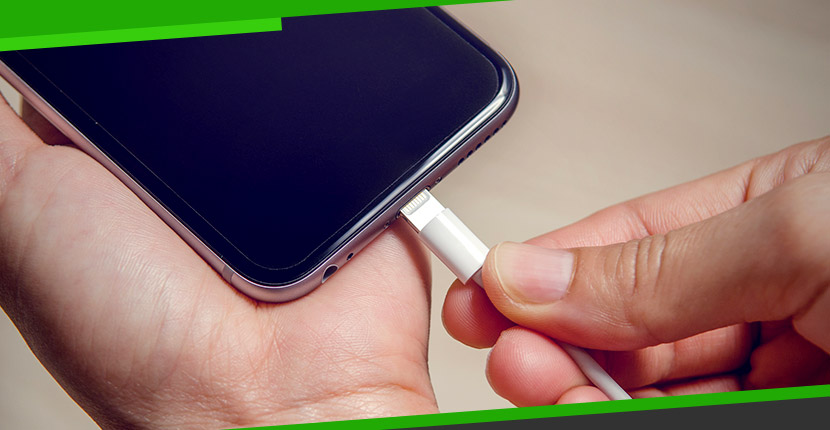Does iPhone Battery Life Decrease Over Time?
Power - by Bryan Veldboom - updated on 5/7/2021

Have you noticed that over time your iPhone doesn’t last as long as it used to between charges? There are a number of factors that influence your battery’s lifespan, which in turn, has an impact on its overall performance. Keep reading to find out why your battery life decreases over time and what you can do to help maximize its lifespan.
What is Chemical Aging?
Your iPhone is powered by a lithium-ion battery. These batteries represent the best technology available for rechargeable devices and can be found in the majority of phones and tablets. Your battery’s overall lifespan is related to its “chemical age,” which is much more than just the passage of time. Chemical aging refers to the combination of factors that impact your battery’s overall lifespan. Some of these factors include your charging and usage habits, along with the climate your phone is exposed to.
What is the Impact of Chemical Aging on an iPhone Battery?
As a general rule, you can expect a typical iPhone battery to last about two years before it needs to be replaced. As your battery begins to chemically age, the amount of charge it can hold decreases, which means you’ll have to charge it more often. You may also notice a slowdown in your phone’s performance or sudden shutdowns. As your battery chemically ages, your phone’s processor can’t draw as much power from it, which can cause your phone to shut down unexpectedly.
To help prevent this, your iPhone will slow down your phone’s performance in order to control how much power it is drawing from the battery. In extreme cases, you may notice some of the following effects:
- Apps take longer to launch
- Lower frame rates while scrolling
- Your backlight may be dimmer
- Lower speaker volume
- A gradual frame rate reduction in some apps
- Apps refreshing in the background may need to be reloaded upon launch
- In the most extreme cases, your camera’s flash may be disabled as visible in the camera UI
How Do I Keep My iPhone Battery Healthy?
Even though you will eventually have to replace your phone’s battery, there are a number of steps you can take to help fight chemical aging and prolong your battery’s lifespan.
- Update your phone to the latest software.
- Avoid extreme temperatures - The ideal temperature zone for your iPhone is 62-72° F. Be sure to avoid temperatures above 92° F, which can permanently damage your battery’s capacity.
- Remove your phone case while charging - If your phone gets hot while charging, take the case off first.
- Keep your phone half-charged during long term storage - Allowing your battery’s charge to drop too low can make it incapable of holding a charge again. Storing it fully charged for an extended period of time can shorten its battery life.
- Optimize your settings - Reduce your battery usage by lowering screen brightness & using Wi-Fi rather than a cellular network.
- Turn on Low Power Mode when your charge drops too low - Low Power mode will reduce display brightness and minimize other features until you can charge your phone up again.
Get Your iPhone Battery Replaced at Batteries Plus
If your iPhone is having difficulty holding a charge, experiencing sudden shutdowns or is performing slowly, it’s probably time to have the battery replaced. Your iPhone enables you to check the battery health directly. Or, you can bring it into your neighborhood Batteries Plus and we’ll test it for you for free. If you need a new battery, our technicians can replace it for you, plus we offer additional services, including broken screen, button, port and speaker repair. Book your repair appointment online today.
Want to know more? Learn how you can make your Samsung Galaxy battery last longer or read up on our charging tips to help maximize your phone’s lifespan.

